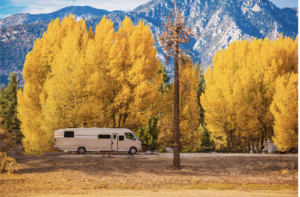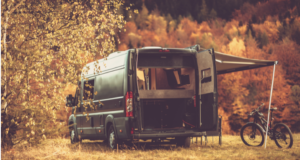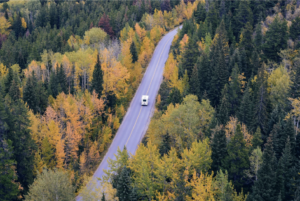How to Prepare Your RV for Colder Month and Campgrounds
Weather changes can be determinantal to your RV during colder months. Preparing your RV for winter months and RV campgrouhnds is crucial for protecting your vehicle from colder weather. There are numerous damages that could occur when outside temperatures drop below freezing. It is imperative that you winterize your RV before cold weather strikes, regardless of whether or not you plan to go camping. There are several things that you can do to increase your RV insulation efforts and protect your vehicle.
The following informational guide will reveal everything that you need to know to prepare your RV for colder weather. Use this information to protect your RV and keep your family warm if you decide to venture out into the great outdoors this winter.
Protect RV Engine
RV engines need to be winterized to withstand the stress associated with the weather during the colder winter months.
Protect RV Plumbing

Cold weather can be especially damaging to RV plumbing systems. Cold weather puts pipes at risk of freezing and may result in cracked or busted pipes. There are several things that you can do to protect your RV plumbing system from excessive damage this winter while driving or when parked at an RV campground.
Safely Utilize Space Heaters in Your RV
Use space heaters to help prevent unprotected pipes from freezing in your RV. Always be sure to maintain an appropriate amount of space between space heaters and any flammable materials, especially when parked overnight at an RV campground.
Space heaters do have the potential to cause excessive moisture inside your RV. This moisture has the potential to result in numerous issues, including corrosion, water, and/or mold damage. A dehumidifier can help prevent this issue by removing moisture from the air.
Dump RV Tanks Wisely
During the warmer months of the year, it is usually in everyone’s best interest to dump RV tanks as often as possible. The opposite is true during the colder months of the year. You should dump RV tanks when they are as close to full as possible during the winter. This practice helps to reduce the risk of freezing. Remember to also keep waste valves closed whenever they are not being utilized.
RV Insulation

RV insulation protects your vehicle from cold weather-related damages. An insulated RV also provides your family with a warmer, comfier, and more enjoyable environment. The good news is that proper RV insulation requires very little maintenance and can remain installed year-round. Insulation would also make it much nicer if you’re planning to spend the night at an RV campground.
Seal RV Windows and Door
Ensuring that all of your RV doors and windows are properly sealed is the first step to increasing your insulation efforts. Examine the sealant around your RV door and windows. Remove and replace any areas with torn, cracked, or missing sealant.
Insulate RV Floors
Insulating your RV floors are a simple and affordable way to prepare your RV for colder months. Foam board flooring is one of the most effective materials for insulating your RV. You can also use heavy rugs, carpets, or other fabrics to maximize your RV insulation efforts.
Install RV Skirting
RV skirting prevents cold winds from causing excessive damage to several RV vehicle components, including water systems.
Prepare Your RV Furnace

Prepare your RV furnace for winter weather by ensuring it is operating at maximum efficiency. Check for any damages that could prevent air from flowing properly.
Cover Your A/C Unit
You won’t need to utilize your A/C unit when camping during the colder months of the year. Protect your A/C system by covering your unit when winter camping.
Install Air Vent Covers
Install air vent covers to keep snow and water outside of your recreational vehicle. Air vent covers allow you to let in the cool outside air without the concern of moisture entering the RV.
Space heaters inside the RV increase the risk of serious illness, including carbon monoxide poising. Protect your family by opening air vents during the colder months. Open vents also help decrease humidity caused by RV heat sources.
Additional RV Winterization Tips

Camping in the wintertime allows RV families to get outdoors and enjoy numerous perks, including beautiful winter scenery, smaller crowd sizes, and a more affordable camping experience.
There are several additional steps that you can take to protect your RV during the cooler months, including:
- Plastic components become especially brittle when exposed to cold temperatures. Be especially cautious when handling plastic materials.
- Check to make sure that all smoke and carbon monoxide detectors are functioning properly. Pack extra batteries to protect your family from a preventable and critical situation.
- Perform a thorough inspection of the RV before you and your family head out onto the roadways.
- A partially charged battery can leave RVers stranded when temperatures drop. Check to make sure that your RV battery is properly connected and completely charged before each and every RV trip.
Campground Membership Outlet

Make the most of your cold-weather camping experience by investing in an RV campground membership. Campground memberships save RVers on fees at campsites across the country. Contact Campground Membership Outlet today for more information on affordable campground memberships.
